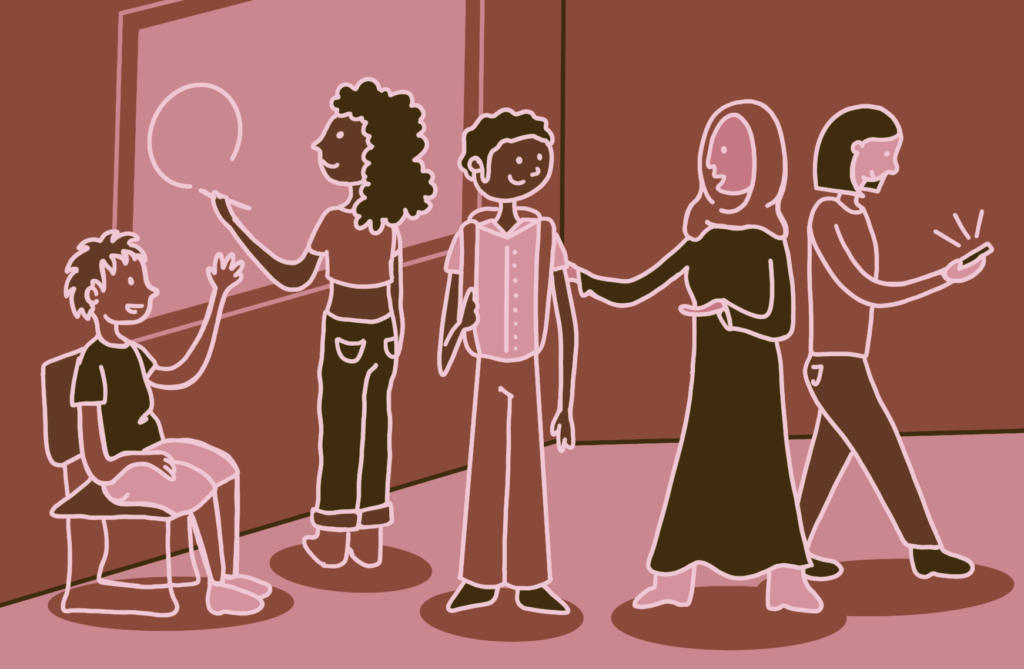New initiative prioritizes equity, support for BIPOC students, headed by IME Director Joann Zhang

The Steve Fund has selected Lewis & Clark for the 2022 Equity in Mental Health on Campus (EMHC) Initiative, a program that focuses on supporting the mental health of students of color.
The program will kick off this October and run through March 2024. Its ultimate goal will be to complete a needs assessment of LC in order to determine concrete recommendations for administrators to consider implementing. Former Associate Dean of Students for Health & Wellness John Hancock inquired about EMHC in April 2022.
Director of Inclusion & Multicultural Engagement Joann Zhang is the head of the initiative’s steering committee and finds this program critical in supporting students.
“I hope this initiative will help us learn more about the experiences of students of color and how we can begin to normalize mental health support, expectations, healthy ways of navigating stress and be liberated from past traumas,” Zhang said via email. “Getting mental health support is essential especially as our country becomes what feels so divided.”
Hancock, Zhang, Sam Flores ’23, and Director of Clinical Services and Acting Director of Counseling Services Robin Keillor completed the application this spring. According to EMHC Program Manager Alyssa Aloyo, LC had a strong application.
“We look for schools that have demonstrated a commitment to prioritizing the mental health of their students,” Aloyo said. “This commitment looks different at every campus, but ultimately, we have to be sure that there is an investment at all levels from the campus leadership and community.”
In addition to providing a needs assessment, the Steve Fund will also provide a campus coach for one-on-one support and conduct Learning Community meetings where LC will meet with up to 12 other cohort institutions. According to Keillor, this unique structure was part of what drew them to apply for this project.
“Sometimes we with all good intentions will launch into campus assessments, more insular, just do it ourselves or maybe with one consultant,” Keillor said. “I like this because it’s with multiple campuses and multiple consultants and as a result, then we can learn from each other.”
Along with directly benefiting the mental health of students of color, Keillor said EMHC will be beneficial to a larger group of students.
“(We will) have some very concrete outcomes to recommend to the college for implementing some changes that will hopefully be to support the wellness and mental health in a very focused way for our students of color, but also I think all marginalized student groups (will) ultimately benefit,” Keillor said.
However, this program is not without challenges. The mental health field has historically harmed people of color, so being cognizant of possible generational trauma is important to the approach Zhang wishes to take.
“I recognize trust will not be gained in one setting or even two and that is okay,” Zhang said. “My hope is that students of color are still willing to take things at their pace and will feel empowered to share their truth whenever that may be.”
Part of why the Steve Fund was founded was to increase access to mental health services given historical inequities, which also informs the EMHC structure.
“Each steering committee is required to have students represented – it is critical to have student voices in this process!” Aloyo said. “The Steve Fund recognizes the history of inequitable data collection and reporting, so we work diligently with the campus coaches and steering committees to ensure the new and critical solutions meet the needs of students of color and are equitable and innovative models to continue the work after the conclusion of the initiative.”
Additionally, the EMHC initiative is not just focused on traditional mental health services, but also on the broader factors that contribute to mental health.
“What I like about the Steve Fund and this initiative specifically, is it’s about recognizing the importance of addressing mental health as a community or it as a campus,” Keillor said. “Because it’s not all about ‘let’s get to see a mental health professional.’”
According to Zhang, some programs at LC already focus on this type of approach.
“A program I’d love to give a shoutout to is the Counseling Center’s “The Let Out” hosted by Mental Health Counselor and BIPOC Outreach Coordinator, Christabel Léonce,” Zhang said. “Christabel hosts informal conversations in the IME suite with our BIPOC students to simply ‘let it out’ with a mental health professional. This gives our students of color an opportunity to talk about life challenges in a non-therapy setting.”
The Steve Fund and the steering committee are looking forward to seeing how this project may benefit campus.
“I’m hopeful for some innovative ways of improving the experiences of our students of color and their mental health,” Zhang said.
Subscribe to the Mossy Log Newsletter
Stay up to date with the goings-on at Lewis & Clark! Get the top stories or your favorite section delivered to your inbox whenever we release a new issue.

Leave a Reply